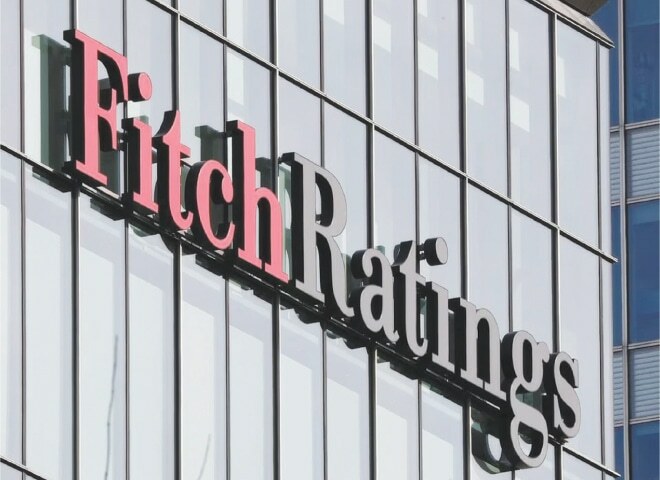Fitch upgrades Pakistan to ‘CCC’ after IMF pact

As a result of recent staff-level agreements (SLAs) with the IMF on a nine-month Stand-by Arrangement (SBA) in June, Fitch Ratings upgraded Pakistan’s long-term foreign currency issuer default rating to ‘CCC’ from ‘CCC-‘, reflecting reduced external financing risks with improved external liquidity and funding conditions.
IMF board approval of the SLA is expected in July, which will lead to other funding and anchor policies around parliamentary elections due by October, according to the rating agency. A volatile political climate and a large external financing requirement also pose risks to programme implementation and external funding.
Fitch said in a statement that the government had now taken all those steps that had delayed three quarterly reviews of the $6.5 billion Extended Fund Facility (EFF), which expired on June 30. Among them were measures to increase revenue collection, energy subsidies, and policies incompatible with a market-determined exchange rate.
Following additional tax measures and subsidy reforms in February, the government recently amended its proposed budget for the fiscal year ending June 2024 (FY24) to introduce new revenue measures and reduce spending. Although guidelines on prioritizing imports were removed in June, the authorities appeared to abandon exchange-rate management in January 2023.
According to the rating agency, Pakistan has a history of going off track on its IMF commitments. According to our understanding, the government has already taken all the necessary steps under the SBA. It pointed out that delays and challenges to implementation could still occur, as well as policy missteps ahead of the October elections and uncertainty over the post-election commitment to the program.
A $1.2 billion disbursement will take place immediately after the IMF board approves the SBA, with the remaining $1.8 billion scheduled for disbursement after November and February 2024 reviews. As a result of the IMF agreement, Saudi Arabia and the United Arab Emirates have committed another $3bn in deposits, and the authorities anticipate $3-5bn in new multilateral funding in the future.
Also, the SBA will facilitate the disbursement of some of the $10bn in aid pledged at the January flood relief conference, mostly in the form of project loans ($2bn in the budget). There are $15bn in public debt maturities in FY24, including $1bn in bonds and $3.6bn to multilateral creditors. The government expects $25bn in newly raised external financing in FY24. Despite some of the loans not rolled over in FY23 returning, the government’s funding goal included $1.5 billion in market issuance and $4.5 billion in commercial bank borrowing, both of which may prove challenging.
There are also likely to be rollovers of $9bn in maturing deposits from China, Saudi Arabia, and the UAE in FY23.
The current account deficit (CAD) of Pakistan has narrowed sharply due to earlier restrictions on imports and foreign exchange availability, tighter fiscal and economic policies, and lower commodity prices, according to Fitch.
Pakistan posted current account surpluses in March-May 2023, and we forecast a CAD of about $4bn (1 percent of GDP) in FY24, after $3bn in FY23 and over $17bn in FY22. Based on Fitch’s assumption that not all of the new funding will materialize, the forecast CAD is lower than the $6 billion in the budget.
Fitch said the external deficit could widen more than expected, given reports of import backlogs, manufacturing’s reliance on foreign inputs, and reconstruction needs following last year’s floods. The authorities intend to finance imports through banks without tapping official reserves, so currency depreciation could limit the rise. Inflows of remittances could also increase as a result of better exchange rates on parallel markets after some remittances have been sent through unofficial channels.
In addition to low foreign exchange reserves and volatile politics, the CCC Long-Term Foreign-Currency IDR also reflected large fiscal deficits and high debt levels.
After former prime minister Imran Khan’s brief arrest on corruption charges in May, protests by supporters of his PTI party accelerated sharply, culminating in attacks on army facilities. PTI members were arrested in the ensuing crackdown, and several high-ranking members of the party resigned. “Nevertheless, Khan’s popularity and the PTI’s popularity create policy uncertainty.”.
Earlier, the prime minister and former finance minister Miftah Ismail had suggested seeking debt relief from noncommercial creditors, including the Paris Club, but the authorities now appear to have abandoned the idea. If Paris Club debt treatment is sought, Paris Club creditors are likely to be treated similarly to private external creditors in any restructuring.
